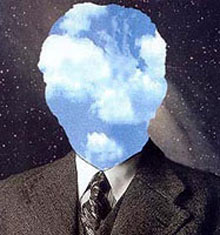My story took place in the Netherlands a year ago. Since then, my relationship with time has changed radically. Days and years now seem blurred, as if linear time has lost its grip. But perhaps that doesn't really matter anymore.
The context: a transpersonal quest
As part of my studies in transpersonal psychology, I felt the call to direct exploration: to experience the psilocybin and altered states of consciousness. As is often the case, the opportunity presented itself as soon as the intention was formulated: a friend told me about a five-day retreat. I signed up without hesitation. The setting was ideal: the Netherlands, a country I deeply love, having lived and worked there for four years.
A safe and ritualized environment
As soon as I arrived in Amsterdam, I joined an eclectic group, welcomed by attentive facilitators who knew how to create a trusted spaceThe framework was based on careful preparation combining rituals, music, dance, song, drawing, and the use of symbolic objects such as the “talking stick”. This approach is based on the founding principles of the transpersonal psychology and of thesomatic integration in therapeutic contexts (Grof, 1980; Levine, 1997).
The first experience: exile and collective memory
The first day, I was immersed in a journey deeply rooted in my family line : a succession of exiled men, of warriors killing and dying. I felt crossed by a visceral and archaic pain, a black and heavy river flowing from my body, as if I were pregnant with this collective past. It was a form of intergenerational transfer of trauma, a phenomenon now well documented in psychotraumatology research (Yehuda et al., 2001; Schore, 2003).
I have also seen mothers cradling invisible babies, in a silent distressThe image evoked unacknowledged grief, the silent losses that mark genealogies. Returning from this immersion, I felt an intense need to ask for forgiveness on behalf of my ancestors, as if a part of the collective memory had been welcomed, recognized, then released.
The second experience: peace and the vocation of love
During the second ceremony, a change took place. With the suffering gone, a space opened up: I then contemplated love. I understood that my place was here, now, for to like And help everyone find their ownA powerful image appeared: that of a flower opening to spread love, then closing again. I saw beings in procession, dressed in white, climbing a hill towards a bright light. This vision was akin to a classic mystical experience, as described in studies on the subjective effects of psilocybin (Griffiths et al., 2006; MacLean et al., 2011).
A lasting change of perspective
This experience transformed my way of understanding existence. It illustrates the potential of psilocybin, a substance classified among classic psychedelics, to facilitate ego dissolution experiences and ofexpansion of consciousness (Carhart-Harris et al., 2014; Grof, 2000). It also rekindled my belief that collective healing requires the recognition of our individual and transgenerational wounds.
Indicative bibliography:
Carhart-Harris, R.L., & Friston, K.J. (2019). REBUS and the anarchic brain: Toward a unified model of the brain action of psychedelics. Pharmacological Reviews.
Griffiths, R.R., Richards, W.A., McCann, U., & Jesse, R. (2006). Psilocybin can occasion mystical-type experiences having substantial and sustained personal meaning and spiritual significance. Psychopharmacology.
Grof, S. (1980). Beyond the Brain: Birth, Death, and Transcendence in Psychotherapy.
Grof, S. (2000). Psychology of the Future: Lessons from Modern Consciousness Research.
Levine, PA (1997). Waking the Tiger: Healing Trauma.
MacLean, KA, Johnson, MW, & Griffiths, RR (2011). Mystical experiences occasioned by the hallucinogen psilocybin lead to increases in the personality domain of openness. Journal of Psychopharmacology.
Schore, AN (2003). Affect Dysregulation and Disorders of the Self.
Yehuda, R., Halligan, S.L., & Bierer, L.M. (2001). Relationship of parental PTSD to offspring behavior and physiology in a community sample. Biological Psychiatry.



